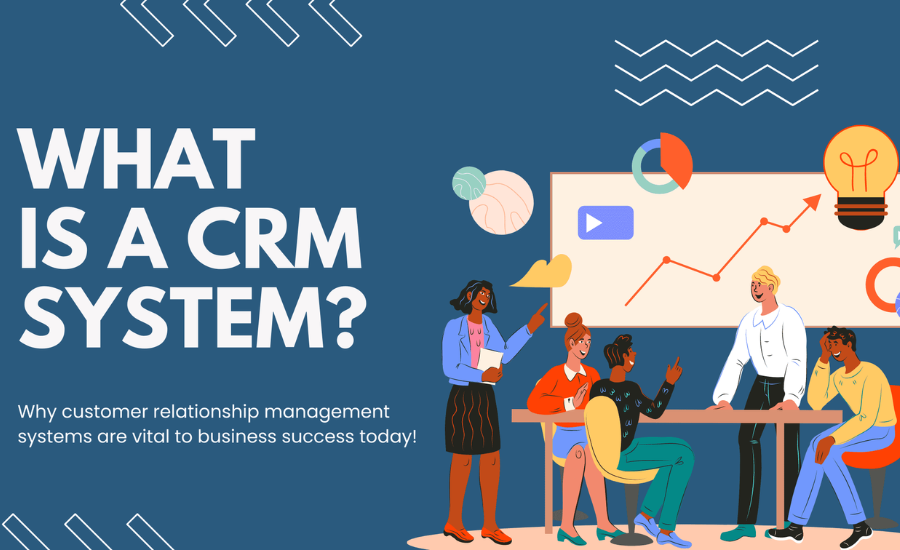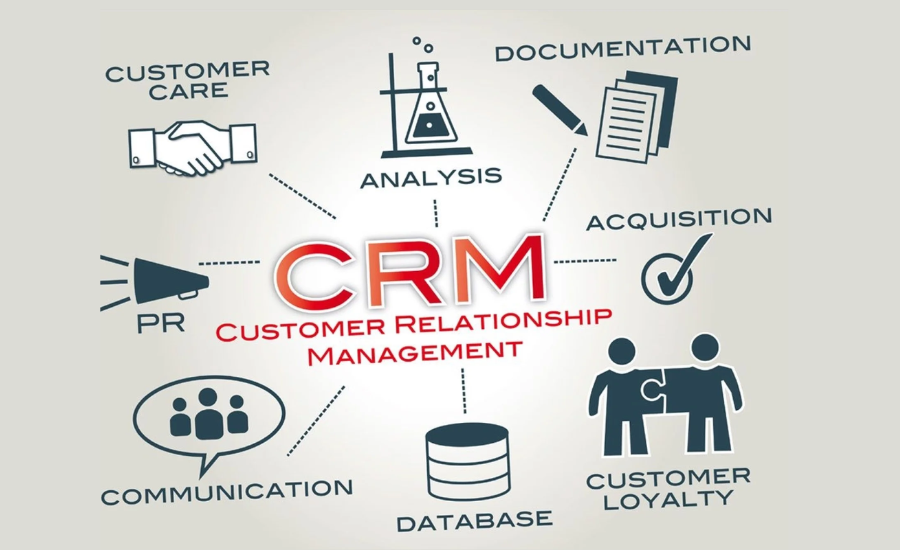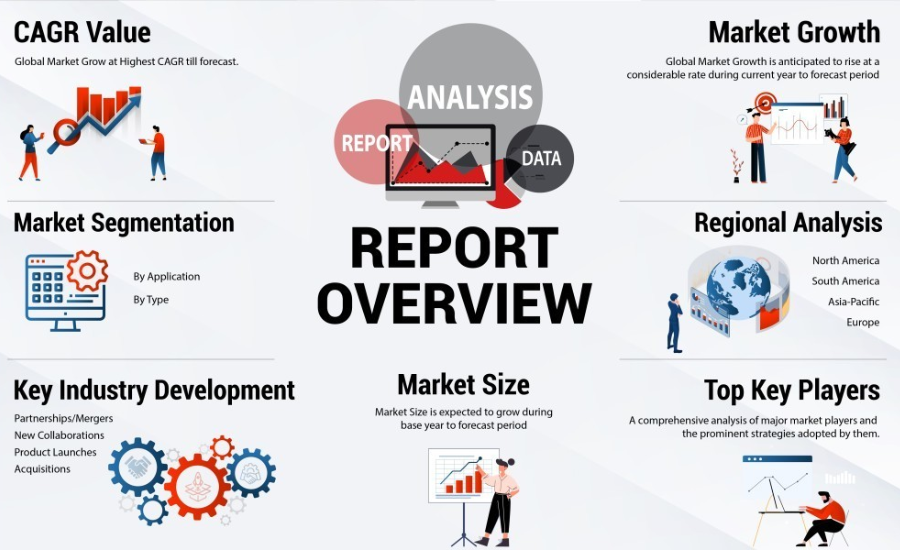Introduction
For many small business owners juggling multiple roles—from CEO to IT manager—choosing and implementing customer relationship management (CRM) software can feel like navigating uncharted waters. CRM software is specifically designed to streamline and enhance how businesses manage their customer relationships. It serves as a centralized hub to track interactions, sales data, support requests, and even marketing campaigns.
The benefits of CRM software are manifold. By consolidating all customer interactions into a single platform, businesses can gain a comprehensive view of their customer base. This unified approach not only simplifies tracking sales and support activities but also enables businesses to glean valuable insights into customer preferences and behaviors. Armed with this knowledge, businesses can tailor their services more effectively, providing personalized experiences that foster customer loyalty and satisfaction.
If you’re considering adopting CRM software for your business, several factors merit consideration. First and foremost, identify which features align best with your business goals and operational needs. The market offers a diverse array of CRM solutions, each offering unique functionalities suited to different business contexts. Second, investing in comprehensive training for your team ensures they can leverage the software to its fullest potential, maximizing efficiency and effectiveness. Lastly, integrating your CRM software with other essential business applications, such as accounting or marketing tools, enhances overall operational synergy and data coherence.
Implementing CRM software represents a strategic investment in enhancing customer relationships and optimizing business processes. With the right approach, businesses can harness CRM technology to drive growth, improve customer satisfaction, and achieve long-term success in a competitive marketplace.
What Is CRM Software?

CRM software, short for Customer Relationship Management software, is a specialized tool that helps businesses manage and track customer interactions. It serves as a centralized repository for storing essential customer data, such as contact information, communication history, and preferences. This allows businesses to maintain detailed records of all customer interactions across various channels, including email, phone calls, social media, and in-person meetings.
CRM software enhances customer service, streamlines sales processes, and optimizes marketing efforts for businesses of all sizes, including self-employed accounting professionals. By automating routine tasks like sending follow-up emails, scheduling appointments, and organizing client financial data, CRM systems help accountants manage their practice more efficiently. It improves overall business efficiency by fostering collaboration among teams, providing shared access to customer information, and enabling informed decision-making based on real-time insights. Ultimately, CRM software helps businesses cultivate stronger customer relationships, drive sales growth, and enhance operational agility, leading to greater customer satisfaction, retention, and loyalty.
How Powerful Is A CRM?
Being the central repository for all client data makes a CRM extremely potent. It aids companies in systematically tracking every interaction with clients, including meetings, phone conversations, and emails. This comprehensive oversight ensures that no information is overlooked and that everyone within the business is promptly updated on the preferences and history of each client.
Businesses can leverage CRM systems to customize their interactions with customers effectively. By centralizing client data, CRMs enable businesses to tailor their communications based on past interactions, preferences, and purchasing behavior. This personalized approach fosters stronger relationships with clients, enhances customer satisfaction, and increases the likelihood of repeat business and referrals.
Enhancing Customer Relationships With CRM Software

CRM software plays a pivotal role in improving customer relationships by providing businesses with tools and capabilities to better understand, engage, and support their customers. Here’s how CRM software can help:
Centralized Customer Data
CRM software centralizes all customer information, including contact details, interactions, purchase history, and preferences, in one accessible platform. This comprehensive view enables businesses to deliver personalized experiences and tailored solutions based on in
Dividual customer needs.
Improved Communication: By tracking customer interactions across various channels—such as emails, calls, social media, and in-person meetings—CRM software ensures consistent and timely communication. This helps businesses respond promptly to customer inquiries, address concerns proactively, and maintain a cohesive dialogue throughout the customer journey.
Enhanced Customer Service
CRM software streamlines customer service operations by automating repetitive tasks, such as ticket management and case resolution. It enables support teams to access relevant customer information quickly, leading to faster issue resolution and higher customer satisfaction.
Targeted Marketing Campaigns
Utilizing customer data insights, CRM software empowers businesses to create targeted marketing campaigns. By segmenting customers based on demographics, behaviors, or purchase history, businesses can deliver personalized messages and offers that resonate with specific customer segments, thereby improving campaign effectiveness and ROI.
Sales Enablement
CRM software supports sales teams by providing tools for managing leads, tracking opportunities, and forecasting sales pipelines. By prioritizing leads based on their likelihood to convert and nurturing them through personalized interactions, sales teams can close deals faster and more effectively.
Analytics And Reporting
CRM software offers robust analytics and reporting capabilities, allowing businesses to measure key performance indicators (KPIs) related to customer relationships. Insights into customer engagement metrics, sales trends, and customer satisfaction levels enable informed decision-making and continuous improvement strategies.
Overall, CRM software acts as a strategic enabler for businesses to build stronger, more meaningful relationships with their customers. By fostering personalized interactions, improving service delivery, and optimizing marketing efforts, CRM software helps businesses enhance customer loyalty, retention, and lifetime value.
What Are the Must-Have Key Features CRM Software?

Contact Management
An essential feature of CRM software is contact management, which enables companies to systematically organize and track client and potential client data. This includes managing people’s names, addresses, phone numbers, email addresses, and social media profiles. CRM systems allow employees to quickly access and update customer details through centralized contact information, ensuring consistency and accuracy across all interactions.
Sales Automation
Sales automation streamlines the entire sales process, enabling sales teams to expedite deal closures. It automates routine tasks such as sending follow-up emails, scheduling meetings, and generating sales quotes. By reducing manual labor, sales automation frees up valuable time for salespeople to focus on building relationships and strategizing effectively.
Customer Service And Support
CRM software enhances the efficiency of customer support operations for businesses by providing a comprehensive view of customer interactions. This allows customer support agents to track and promptly address issues by accessing detailed customer histories. CRM systems can also automate customer service tasks like managing support tickets and sending satisfaction surveys, thereby improving response times and overall customer satisfaction.
Marketing Automation
Integrated marketing automation features within CRM systems simplify campaign planning, execution, and monitoring for businesses. Tasks such as sending newsletters, segmenting customer bases based on behavior, and analyzing campaign performance can all be automated. This automation enables marketing teams to target the right audience more effectively with personalized communications, ultimately enhancing campaign effectiveness and ROI.
Reporting And Analytics
CRM software offers robust reporting and analytics functionalities that provide businesses with comprehensive insights into their marketing, sales, and customer service efforts. These insights include reports on campaign effectiveness, customer behavior analysis, and sales performance metrics. By leveraging data-driven insights, businesses can make informed decisions, identify trends, and adjust strategies to optimize outcomes and achieve greater business success.
Steps To Implement And Use A CRM System
The first essential step in harnessing the power of a CRM system is to grasp its purpose and benefits for your business. A CRM system serves as a centralized software solution designed to manage and streamline customer data and interactions. It consolidates information like contact details, communication history, and sales data into one cohesive platform. By centralizing this data, businesses gain a clearer understanding of their customer relationships and can tailor their strategies to meet customer needs more effectively.
The next critical step involves selecting the right CRM system tailored to your business’s specific requirements. With numerous options available, thorough research is essential to identify a system that aligns with your operational goals and customer management needs. Once a suitable CRM system is chosen, the next phase is implementation. This often involves collaboration with CRM consultants or specialized firms that assist in setting up and configuring the system to maximize its functionality and integration with existing business processes.
After successfully implementing the CRM system, the final step is active utilization. Businesses should begin using the system to track customer interactions, manage data effectively, and derive actionable insights. This step may include training employees to use the CRM system proficiently, ensuring they leverage its full capabilities to enhance customer relationships and operational efficiency. By embracing CRM software effectively, businesses can unlock its potential to elevate customer service, optimize sales processes, and drive overall business growth. For real estate professionals, finding the best CRM for real estate investors can further streamline operations and improve client management.
Popular CRM Solutions In The Market

Salesforce
Renowned for robust features and high customizability.
Ideal for large enterprises needing scalable CRM solutions.
Offers comprehensive tools for sales, marketing, and customer service.
HubSpot
Features a user-friendly interface tailored for small to mid-sized businesses.
Integrates marketing, sales, and customer service seamlessly.
Known for its inbound marketing capabilities and lead nurturing tools.
Zoho CRM
Provides extensive features at a lower cost compared to competitors.
Suitable for businesses looking for affordability without compromising functionality.
Offers modules for sales automation, marketing automation, and customer support.
Microsoft Dynamics 365
Integrates well with other Microsoft products like Office 365 and Teams.
Offers strong capabilities in sales automation, customer service, and field service.
Ideal for businesses already using Microsoft ecosystems seeking seamless integration.
Pipedrive
Focuses primarily on sales pipeline management and deal tracking.
Tailored for smaller teams or businesses emphasizing sales process efficiency.
Offers intuitive interface and automation features specific to sales management.
Choosing the right CRM involves assessing your business needs, considering factors like scalability, integration capabilities, user interface preferences, and budget constraints. Each of these platforms offers unique strengths that can cater to different business sizes and requirements effectively.
Case Studies and Success Stories About the Power of CRM Software
Salesforce And Coca-Cola
Salesforce helped Coca-Cola streamline its customer relationship management across multiple departments and global locations. By centralizing customer data and improving collaboration, Coca-Cola enhanced customer satisfaction and operational efficiency.
HubSpot And SuperOffice
SuperOffice, a European CRM provider, used HubSpot to automate marketing campaigns and streamline lead management. This integration led to a significant increase in lead conversions and improved customer engagement through personalized communications.
Zoho CRM And World Vision
World Vision, an international humanitarian organization, implemented Zoho CRM to manage donor relationships and fundraising efforts. Zoho’s customizable features allowed World Vision to tailor campaigns and track donor interactions effectively, resulting in improved donor retention and increased contributions.
Microsoft Dynamics 365 And AccuWeather
AccuWeather utilized Microsoft Dynamics 365 to integrate sales, marketing, and customer service functions. This unified approach enabled AccuWeather to deliver personalized weather services to customers and partners globally, enhancing user satisfaction and business growth.
Pipedrive And Real Estate Agency
A real estate agency adopted Pipedrive to streamline property listings and client interactions. Pipedrive’s visual pipeline management and automation features helped the agency track sales processes more efficiently, leading to faster deal closures and improved client relationships.
These case studies illustrate how different CRM solutions have empowered organizations across various industries to enhance customer relationships, improve operational efficiency, and achieve measurable business growth.
Tips for Successfully Utilizing A CRM System
1:Maintain Clean and Up-to-date Data
Regularly clean and update your CRM data to ensure accuracy. This practice prevents issues like duplicate records or outdated information, which can hinder effective decision-making and customer interactions.
2:Utilize Automation
Leverage automation features within your CRM system to streamline repetitive tasks such as email follow-ups, task assignments, and data entry. Automation not only saves time but also reduces errors, allowing your team to focus on strategic activities and customer relationships.
3:Promote Collaboration:
Encourage a collaborative culture where team members actively use the CRM system to share information, insights, and updates. By centralizing communication and project management within the CRM platform, teams can work more cohesively towards common goals and enhance overall productivity.
4:Harness Reporting and Analytics:
Take full advantage of the reporting and analytics capabilities of your CRM system. Generate detailed reports on sales performance, customer behavior trends, and campaign effectiveness. These insights enable data-driven decision-making, helping you to identify opportunities for improvement, optimize strategies, and ultimately drive business growth.
By implementing these tips, businesses can effectively leverage their CRM system to enhance customer relationships, streamline operations, and achieve sustainable success in today’s competitive marketplace.
Frequently Asked Questions (FAQs) About CRM Software
What is CRM software used for?
CRM software is used to manage and track customer interactions, store customer data, streamline sales processes, and enhance marketing efforts. It helps businesses improve customer relationships by providing tools for personalized communication and efficient customer service.
How can CRM software benefit my business?
CRM software centralizes customer data, improves communication across teams, automates repetitive tasks, and provides insights through analytics. These benefits lead to enhanced customer satisfaction, increased sales efficiency, and better decision-making based on data-driven insights.
What features should I look for in CRM software?
Essential features include contact management, sales automation, customer support tools, marketing automation, and robust reporting and analytics capabilities. The choice of features depends on your business needs, scalability requirements, and integration capabilities with existing systems.
How do I choose the right CRM software for my business?
Consider factors such as your business size, industry-specific needs, budget, and scalability requirements. Evaluate CRM platforms based on their usability, customization options, integration capabilities, customer support, and user reviews to find the best fit for your organization.
How can CRM software improve customer relationships?
CRM software enables businesses to deliver personalized experiences, track customer interactions across multiple channels, resolve issues promptly, and analyze customer behavior. This holistic approach helps businesses understand and meet customer needs more effectively, fostering stronger relationships over time.
Conclusion
In conclusion, mastering CRM software can significantly enhance your business operations by centralizing customer data, improving communication, automating tasks, and providing actionable insights through analytics. By implementing a CRM system tailored to your business needs and fostering a culture of collaboration and data-driven decision-making, you can unlock its full potential to drive customer satisfaction, streamline processes, and achieve sustainable growth.
Whether you choose a robust platform like Salesforce for enterprise-level capabilities, opt for user-friendly solutions like HubSpot ideal for small to mid-sized businesses, or seek affordability with feature-rich options like Zoho CRM, the key lies in leveraging CRM software to optimize customer relationships and operational efficiency.
By following best practices such as maintaining clean data, utilizing automation, promoting collaboration, and harnessing reporting tools, you can maximize the benefits of CRM software and propel your business towards success in today’s competitive landscape.
Stay in touch for more updates and alters visit: Times Radar!
